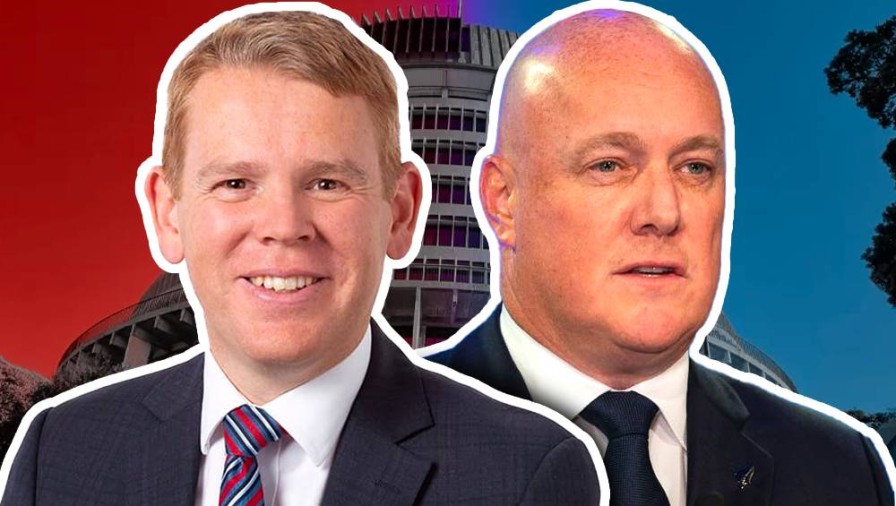Election bids, party troubles, Todd Muller’s valedictory
ANALYSIS: National pledges to fund 13 new cancer drugs, while Labour focuses on maths, reading, and writing.
NBR political editor Brent Edwards speaks with Grant Walker.
ANALYSIS: National pledges to fund 13 new cancer drugs, while Labour focuses on maths, reading, and writing.
NBR political editor Brent Edwards speaks with Grant Walker.
The National Party made another bid for votes this week by promising to directly fund 13 cancer treatments that are helping to extend survival rates in Australia.
Its leader Christopher Luxon says National will allocate $280 million to Pharmac over four years but ring fence the money to pay for 13 treatments for lung, bowel, kidney, melanoma, and head and neck cancers, which are not currently funded.
The announcement was met with an almost equal measure of approval and criticism. Not that people argue against funding cancer drugs, but critics argue that, by identifying them in this way, National had tied Pharmac’s hands when it came to negotiating good deals with big pharmaceutical companies. They also argue it is not a good precedent when politicians start to make clinical decisions about which drugs to use.
Instead, the critics argue, National should simply increase Pharmac’s budget – but leave it to the organisation to determine where best to spend it – and hire more doctors and nurses.
But advocates are pleased more cancer drugs will be made available, removing the need for those who can afford it to fly across the Tasman to get treatment not available here.
Meanwhile, the Labour Party announced it would ensure financial literacy was taught in schools and it would also require the core teaching requirements for maths, reading, and writing to become compulsory so teachers in all schools teach those subjects in a consistent way.
“We have been working on a model that will see maths, reading, and writing taught the same way right across the country. Today, I’m announcing that we will legislate those core teaching requirements so that all young people, regardless of where they go to school, get the same education,” Education Minister Jan Tinetti said.

Education Minister Jan Tinetti.
It prompted National Party education spokesperson Erica Stanford to accuse the Government of flip flopping by copying a part of National’s education policy, in which it would require maths, reading, and writing to each be taught for one hour a day.
“After six months of attempting to critique National, Labour has today announced one part of National’s four-part Teaching the Basics Brilliantly policy but leaving out core elements that make the policy effective,” Stanford says.
All this comes as the latest 1News-Verian poll recorded Labour’s support slipping to 29% and the gap between the centre-right and centre-left growing. It reinforces trends in the polls that indicate a National-led government is more likely after the election than a Labour-led one.
Commentators suggest the latest poll results mean Labour’s policy of taking GST off fruit and vegetables did not work politically, with its popularity falling after the announcement. But Walker points out the Government also announced at the same time – as part of the Government Policy Statement on Transport – that petrol taxes would go up by 12 cents a litre over the next three years, ruling out any gains made by scrapping GST on fruit and vegetables.
It is also unlikely that public sentiment shifted so immediately on the announcement of Labour’s GST policy. Policy announcements rarely, if ever, have such an immediate impact. More likely this poll – and others showing Labour lagging behind National – reflect voters’ concerns about the economy and inflation and their reaction to a host of ministerial scandals over the period since Hipkins became leader.
It is worth remembering that his appointment as Labour leader – and hence Prime Minister – to replace Jacinda Ardern did actually result in a short-term bounce for Labour in the polls. In a poll taken immediately after he became leader, Labour recorded 38% support, having fallen to 33% in November 2022. It then recorded 36% in March, 35% in May, 33% in July, and 29% this month as its support began to slide in the aftermath of those ministerial mishaps.
Hipkins of course has to put on a brave face and partially blamed a lack of media coverage of the GST policy – even though it was well covered – for the fall in support. He also makes the point that even with the election just seven weeks away, many voters have not yet tuned into the campaign. And he is promising a vigorous campaign.
Yet he faces an uphill task to turn around Labour’s ailing fortunes. It will require him to run a largely faultless campaign and hope that National – and its leader Christopher Luxon – falter under the increasing spotlight of public scrutiny.

Labour leader Chris Hipkins will be be hoping he runs a much stronger campaign than National leader Christopher Luxon.
Not everything has gone well for National this week. It released its party list on Sunday and soon longstanding MP and former minister Michael Woodhouse announced he had taken his name off the list before it was announced when he found out he had been dropped well down the pecking order. He put it down to the party’s push for diversity and lamented the fact it was losing experience as a result.
A likely National-led Cabinet – with everyone presuming Gerry Brownlee will be made Speaker – does look light on experience.
Then, on Thursday, Luxon had to stand down MP Tim van de Molen from his portfolio responsibilities after the MP was found in contempt of Parliament by the Privileges Committee over the “aggressive” way he approached Transport and Infrastructure Select Committee chair Shanan Halbert after a committee meeting.
National’s likely support party Act also had a bumpy week, with leader David Seymour forced to defend the party’s candidate selection process.
One candidate who likened vaccine mandates to concentration camps has resigned and other apologised for linking Covid-19 vaccines to drownings. Earlier, a third candidate stepped down after referring to Covid-19 as “mass hysteria” and, in a parody song, said former prime minister Dame Jacinda Ardern had thought about throwing people in a gulag.
Act’s website says it has always attracted good candidates, “people with a love of freedom, with liberal values, and who want to work hard to make New Zealand a better place for everyone”.
Seymour has had to spend time spelling out Act’s vetting process for candidates, as some of those selected provide fodder for the party’s critics.

Act leader David Seymour’s Guy Fawkes joke has got him into trouble but he is doubling down on it.
Not that Seymour has helped either, as he doubles down on his “joke” about Guy Fawkes in a reference to the Ministry for Pacific People’s spending. He asked Hipkins about it this week, including on Wednesday asking if the Prime Minister stood by his statement that making a “joke about blowing up an ethnic minority is something that isn’t really funny”?
“Why did he mischaracterise my criticism of wasteful spending at a government department as an attack on an entire ethnic group?” Seymour asked.
“It’s a matter for the member to clarify what it was he was intending when he said he thought that sending Guy Fawkes into the Ministry for Pacific Peoples was an appropriate thing to do,” Hipkins replied.
For the rest of the week, Parliament spent its time pushing through legislation under urgency and hearing more valedictory speeches from retiring MPs.
In his valedictory former National leader Todd Muller made a plea about the political approach to the Treaty of Waitangi, another issue that Act has run hard on.
Muller said growing discontent was increasing partisanship which, in turn, was fuelling a level of political toxicity that was corrosive to society.
He said the “two great tribes of New Zealand politics” – Labour and National – had a real responsibility. They had adopted a bi-partisan approach to setting historic Treaty claims, but areas of common agreement around the role of the Treaty had been eroded.
While he agreed with the principle of one person, one vote that did not mean that, where there was inequality in political representation, the country should not be open to ensuring those voices could see a pathway to greater representation.
“Framing Māori aspiration as a binary choice between radicalism and conservatism is as dangerous as rapid changes to our institutions without due diligence and consultation. So, I ask the two great tribes of New Zealand politics to quietly begin refreshing and strengthening their relationships across the aisle on this kaupapa, and work together to allow the centre of New Zealand politics to move, but also to hold,” Muller said.
But, with an election to be won or lost, that work might have to wait for at least seven weeks.
Brent Edwards is NBR’s political editor.